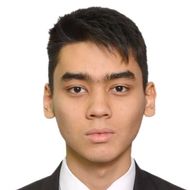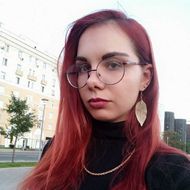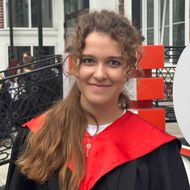About School
School for Students and Young Scientists 'Quaternions, Geometric Algebras, and Applications' is organized by the Laboratory for Geometric Algebra and Applications (HSE University) in collaboration with the international research laboratory 'Multiscale Mathematical Modeling and Computer Calculations' of the Federal State Autonomous Educational Institution of Higher Education 'M. K. Ammosov North-Eastern Federal University' (NEFU, Yakutsk) as part of the project 'Mirror Laboratories (HSE Univeristy): 'Quaternions, Geometric Algebras, and Applications'.
Dates: November 15–17, 2024.
Format: Online.
Working languages: Russian and English.
Topics of School
- Quaternions, split-quaternions, commutative quaternions;
- Geometric algebras, Clifford algebras, Grassmann algebras;
- Spin groups and other Lie groups in the framework of Clifford algebras;
- Spinors, Dirac equation, and other applications in field theory;
- Applications to neural networks;
- Applications to image processing;
- Other applications in computer science, engineering, and physics.
Format of Sessions
The School will include lectures and practical sessions designed to help participants understand theoretical foundations and master modern approaches to applying this theory. The program will feature approximately 3-4 hours of sessions each day, scheduled in the morning (Moscow time) to accommodate participants from Russia’s eastern regions.
Participants may also present their own scientific papers related to the event’s topics. Applications for presentations (title and short abstract) are submitted during registration.
Target Audience
The School is intended for students, graduate students, and young scientists interested in mathematics, physics, computer science, and related fields. Deep knowledge of geometric algebra and quaternions is not required — all essential definitions will be covered during the lectures and practical sessions. Basic knowledge at the level of a standard first-year university linear algebra course is sufficient.
Speakers
Lectures Will Be Led By
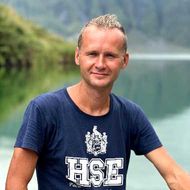
Dmitrii Shirokov
Doctor of Physical and Mathematical Sciences; Head of the Laboratory for Geometric Algebra and Applications, Professor in the Department of Mathematics; HSE University, Moscow
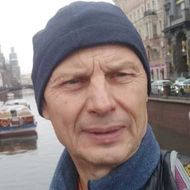
Nikolay Marchuk
Doctor of Physical and Mathematical Sciences; Leading Researcher at the Steklov Mathematical Institute of the Russian Academy of Sciences and HSE University, Moscow

Vasil'ev Vasily
Doctor of Physical and Mathematical Sciences, Professor; Head of the Department of Computational Technologies; NEFU, Yakutsk

Jiang Tongsong
Ph.D., Professor, Linyi University, China
Practical Sessions Will Be Led By

Wang Gang
Candidate of Physical and Mathematical Sciences; NEFU, Yakutsk

Guo Zhenwei
Graduate Student; NEFU, Yakutsk

Zhang Dong
Graduate Student; NEFU, Yakutsk
Program
Time is in Moscow time zone (MSK).
- November 15
- November 16
- November 17
-
10:00–11:00 — History of Clifford Algebras
Speaker: Nikolay Marchuk (Steklov Mathematical Institute and HSE University)
Language: Russian
Format: Lecture
Abstract: This session will cover my perspective on the creation and development of Clifford algebra theory, from the contributions of William Clifford’s predecessors (Hamilton and Grassmann, 19th century) up to the early 21st century.
-
11:00–12:00 — Calculation and Application for Four Dimensional Algebraic Matrix Model
Speaker: Tongsong Jiang (Linyi University)
Language: English
Format: Lecture
Abstract: This lecture analyzes the historical development of number systems, focusing on quaternion matrices and their properties such as generalized inverse, singular value decomposition, eigenvalue, and least squares problems, as well as their practical applications in fields like quantum mechanics and color image processing.
-
10:00–11:00 — Fundamental Operations in Clifford Algebras and Their Relation to Matrices
Speaker: Dmitry Shirokov and Ekaterina Filimoshina (HSE University)
Language: Russian
Format: Lecture
Abstract: This lecture will cover the fundamental operations in Clifford algebras, discuss matrix representations, and explore the Cartan–Bott periodicity.
-
11:00–12:00 — Dirac–Hestenes Equation and Its Invariance
Speaker: Sofiia Rumiantseva (HSE University)
Language: Russian
Format: Practical session
Abstract: The Dirac–Hestenes equation is a real analogue of the Dirac equation within the framework of Clifford algebra. This lecture will consider the Dirac and Dirac–Hestenes equations, exploring their equivalence, gauge invariance, and invariance under Lorentz transformations.
-
12:00–12:30 — Break
-
12:30–13:30 — Inverse Element in Geometric Algebra
Speaker: Kamron Abdulkhaev (HSE University)
Language: Russian
Format: Practical session
Abstract: In this session, we will cover concepts such as trace, determinant, and characteristic polynomial within Clifford algebras to compute the inverse element.
-
13:30–15:30 — Clifford Algebras and Equivariant Neural Networks: From Theory to Implementation
Speaker: Ekaterina Filimoshina (HSE University)
Language: Russian
Format: Practical session
Abstract: In this session, we will cover pseudo-orthogonal transformations and how they can be represented using geometric algebras, discuss theoretical foundations of equivariant neural networks, and implement equivariant networks based on Lipschitz groups using Python.
-
15:30-16:10 — Commutative analogues of Clifford algebras
Speaker: Heerak Sharma (Indian Institute of Science Education and Research (IISER), Pune, India)
Language: English
Format: Talk by a participant of the School
Abstract: Commutative analogues of Clifford algebras are algebras generated by generators which square to ±1 and commute with each other, unlike the generators in Clifford algebras which anti-commute with each other. First, we will start by discussing that these algebras can be decomposed as tensor products of algebras generated by a single generator. Next, we will give a matrix representation of these algebras. Lastly, taking inspiration from complex numbers and split complex numbers, we will define operations of conjugations in them and look at multiplicative inverses of invertible elements.
-
10:00–11:00 — The Development of Mathematical Research in Yakutia
Speaker: Vasily Vasil'ev (NEFU)
Language: Russian
Format: Lecture
Abstract: This lecture will provide an overview of the development of mathematical education and research in Yakutia from 1956 to 2024, sharing a perspective on its evolution and growth.
-
11:00–12:00 — Singular Value Decomposition of Split-Quaternion Matrices and Its Application to Color Image Processing
Speaker: Wang Gang (NEFU)
Language: English
Format: Practical session
Abstract: This session will explore the singular value decomposition of split-quaternion matrices and its application to color image processing. Definitions, algorithms for split-quaternion matrix decomposition, color image representation models, and related processing technologies will be presented.
-
12:00–12:30 — Break
-
12:30–13:30 — Calculating Eigenvalues of Hermitian Quaternion Matrices and Face Recognition
Speaker: Guo Zhengwei (NEFU)
Language: Russian
Format: Practical session
Abstract: In this practical session, we will examine fast algorithms for calculating the eigenvalues of Hermitian quaternion matrices and their efficient use in face recognition for color images.
-
13:30–14:30 — Decomposition Algorithms for Commutative Quaternion Matrices and Color Image Processing
Speaker: Zhang Dong (NEFU)
Language: English
Format: Practical session
Abstract: This session will focus on applying decomposition algorithms for commutative quaternion matrices to color image processing tasks such as color image compression, authentication, and others, using MATLAB.
Q&A
To join, you need to complete the registration process. All organizational information, including the link to the broadcast, will be sent to registered participants.
Yes, absolutely! All essential definitions and theoretical concepts of geometric algebras and quaternions used in the lectures and practical sessions will be explained by the speakers during the sessions.
Yes, there will be several theoretical and practical homework assignments provided during the lectures and practical sessions for those interested.
Certificates of successful completion will be awarded to all participants who complete a few small homework assignments during the School. Participation without obtaining a certificate is also possible.
After the School ends, recordings of the sessions will be sent to registered participants.
We would be happy to answer any questions you may have! Feel free to email us at gaa.lab.hse@gmail.com.
